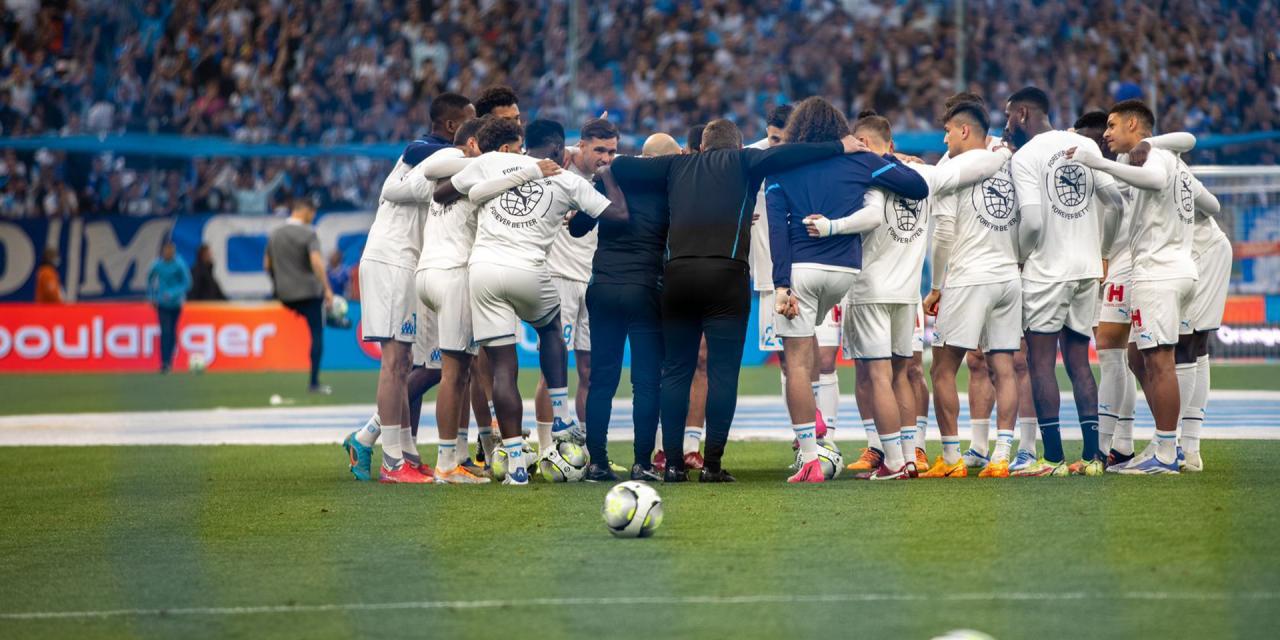The RE:JERSEY shirts worn ahead of Sunday’s game are made with 75% repurposed football jerseys. The remaining 25% comes from SEAQUAL ® MARINE PLASTIC.* The aim of the project is to reduce waste and pave the way towards more circular production models in the future.
While PUMA’s football kits on the market today are already made from 100% recycled polyester, PUMA trials garment-to-garment recycling as part of the RE:JERSEY project. In the recycling process used for RE:JERSEY , even old garments that feature logos, embroideries and club badges can be used, as the material is chemically broken down into its main components (depolymerization). Colors are then filtered out and the material is chemically put back together to create a yarn (repolymerization) that has the same performance characteristics as virgin polyester
“We are very glad that Olympique de Marseille has chosen to partner with us in this exciting sustainability project,” said Matthias Baeumer, General Manager BU Teamsport at PUMA. “Through projects such as RE:JERSEY, we are finding ways to take more responsibility when it comes to the end of life of our products.” Olympique de Marseille will set up collection bins in the fan store at the Orange Vélodrome, so fans can bring back their old polyester items, which will become a part of the RE:JERSEY project.
* SEAQUAL® MARINE PLASTIC is a sustainable and fully traceable raw material from SEAQUAL INITIATIVE that is made from marine litter, or in some cases from end-of-life fishing nets or other plastics used in aquaculture (such as those used in mussel and oyster farming). For more information, visit https://www.seaqual.org

